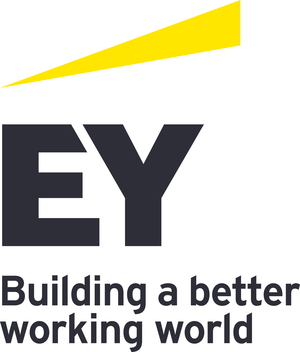WASHINGTON, June 21, 2017 /PRNewswire/ -- As the US Congress and Administration debate reform of the US tax system, The Tax Council's and Ernst & Young LLP's latest Tax Reform Business Barometer polled business executives, including tax directors and government relations executives, on the topic.
House Republican Blueprint for Tax Reform (the Blueprint)
Expectations for release of statutory language for the Blueprint have tempered since the January 2017 Barometer, with 36% of May 2017 respondents believing statutory language will be released in September or October 2017 and 29% believing statutory language will be released in July or August 2017. In the January 2017 Barometer, half of respondents believed there was a 40% likelihood that statutory language would be released before the end of April 2017.
If the border adjustment provision is not retained in the Blueprint, 39% of respondents expect a higher corporate income tax rate and 27% of respondents expect base erosion-type provisions similar to those proposed in Chairman Camp's 2014 tax reform plan as the most likely alternatives to replace the revenue that would have been generated by the border adjustment provision.
"Border adjustments and their revenue implications are an important part of the discussion happening in Congress and the Administration around tax reform," said Robert Carroll, National Director of Quantitative Economics and Statistics (QUEST) for Ernst & Young LLP. "Many businesses have already modeled the Blueprint. They can get a head start on the next phase of the debate by looking closely at potential changes in some of the key aspects of the Blueprint and modeling its effects on their company, industry and markets."
Tax reform proposal from the Senate Finance Committee
When asked for their thoughts on the most likely direction of the Senate Finance Committee Chairman in preparing a tax reform plan, 38% of respondents believed that the Chairman will likely release a plan similar to Camp's 2014 tax plan. Many respondents (29%) believe that the Chairman will likely release a plan integrating individual and corporate taxes, while a similar percentage (21%) believe no plan will be released at all.
Modeling tax reform
Almost all respondents (80%) indicated their organization is performing or has performed some modeling of the potential impacts of tax reform on their organization's (or members'/clients') federal tax liability. Of these respondents, most (92%) have modeled the impacts of the Blueprint, while only 62% and 50% have modeled the impacts of the Camp and Trump tax plans, respectively. Only 9% of respondents participating in modeling their organization's federal tax liability indicated they have modeled an integration plan.
- In general, organizations are taking steps to model various tax plans — 58% are modeling the impacts on their organization's competitive positions in its industry and 54% are modeling the potential impacts on their organization's markets.
- Organizations are primarily focused on modeling the potential impacts of the House Blueprint model — most respondents (77%) are modeling the impacts of the Blueprint on their organization's federal tax liability, competitive market positions or markets.
Prospects for federal tax reform
In every Barometer since February 2014, respondents have consistently viewed 2017, the first year of a new administration's term, as the most likely year for enacting federal tax reform. In the May 2017 Barometer, many view 2018 as the most likely year for enacting tax reform and optimism remains that tax reform enactment will occur this year or next.
"Tax reform could be a multi-year process with considerable progress expected this year, so companies should be engaged," said Lynda Walker, Executive Director of The Tax Council. "Policymakers, the business community and the public share a strong interest in a simpler, fairer tax system that is more conducive to economic growth. Even given the challenges of such a task, they know it's possible and a worthy endeavor."
A majority of those responding (62%) believe tax reform is likely to be enacted in 2017 or 2018 — on average, 26% of respondents believe tax reform will likely be enacted in 2017, while 36% believe tax reform will likely be enacted in 2018. In contrast, 48% of respondents in the January 2017 Barometer, on average, believed tax reform would likely be enacted in 2017, while 35% believed enactment would likely occur in 2018.
- Half of respondents gave passage of tax reform legislation at least a 50% chance in the House and at least a 23% chance in the Senate.
- Approximately 75% of respondents think reform will be comprehensive, similar to the 73% of respondents from the January 2017 Barometer.
To view the full report, please visit http://www.ey.com/us/en/services/tax/tax-policy/business-tax-reform-and-trends-survey-views.
About the TTC/EY Tax Reform Business Barometer
The Barometer measures the expected likelihood of the different stages and key elements of federal tax reform. It tracks trends in the views of business tax professionals as the US Congress debates and develops tax reform. One hundred and eight leading US tax executives and practitioners completed the May 2017 Barometer. Results are based on an online survey conducted by Ernst & Young LLP's Quantitative Economics and Statistics (QUEST) practice.
About The Tax Council
The Tax Council is a Washington, DC-based non-profit, non-partisan, membership organization promoting sound tax and fiscal policies since 1966. Its membership is comprised of (but is not limited to) Fortune 500 companies, leading accounting and law firms, and major trade associations. The Tax Council provides various types of educational and networking events (e.g., luncheons, conferences, symposia) for its members to meet with key tax policy decision makers from the US Congress and Administration to discuss important current tax issues. The Tax Council's events provide excellent opportunities for its members to network and build stronger working relationships with government officials and colleagues in other businesses.
About EY
EY is a global leader in assurance, tax, transaction and advisory services. The insights and quality services we deliver help build trust and confidence in the capital markets and in economies the world over. We develop outstanding leaders who team to deliver on our promises to all of our stakeholders. In so doing, we play a critical role in building a better working world for our people, for our clients and for our communities.
EY refers to the global organization, and may refer to one or more, of the member firms of Ernst & Young Global Limited, each of which is a separate legal entity. Ernst & Young Global Limited, a UK company limited by guarantee, does not provide services to clients. For more information about our organization, please visit ey.com.
This news release has been issued by Ernst & Young LLP, a member firm of EY serving clients in the US and The Tax Council.
SOURCE EY
Related Links
WANT YOUR COMPANY'S NEWS FEATURED ON PRNEWSWIRE.COM?
Newsrooms &
Influencers
Digital Media
Outlets
Journalists
Opted In






Share this article